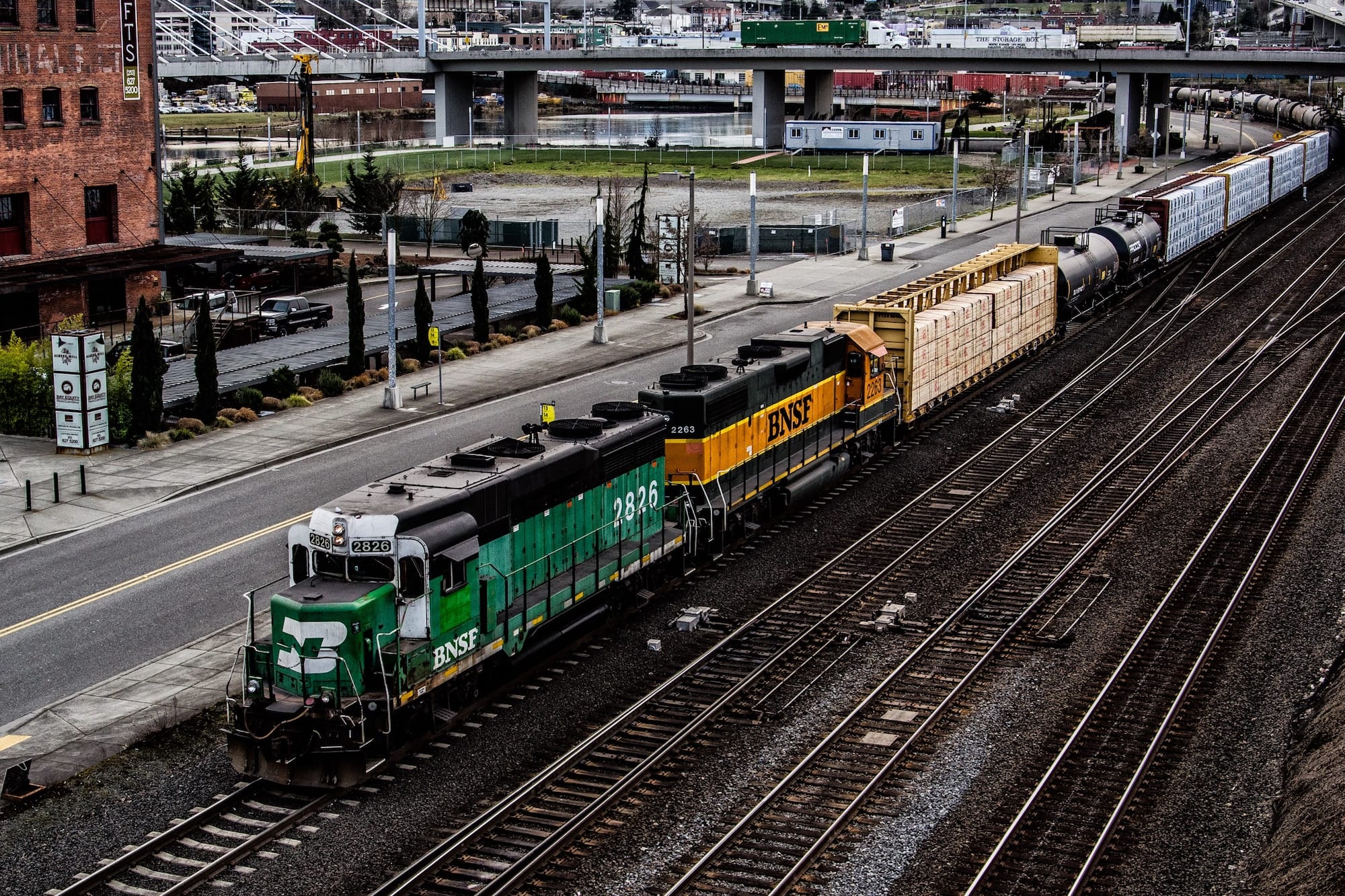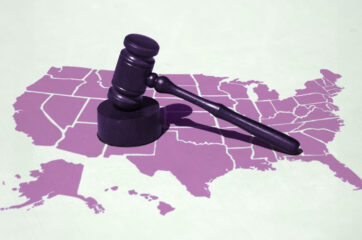Though Washington State voters have rejected carbon pricing proposals twice before, lawmakers haven’t given up on making the state the first in the nation to impose a direct fee on carbon pollution. A comprehensive transportation funding package that will impose a $15 per ton fee on carbon – and raise other taxes – is steadily moving through the Washington State Senate. On March 6th, the bills, sponsored by Sen. Steve Hobbs (D), passed through the Senate Transportation Committee with an 8-7 vote.
The Bills
The transportation package is comprised of three bills: SB 5970, SB 5971, and SB 5972.
- SB 5970 authorizes the sale of $5 billion of general obligation bonds for transportation funding.
- SB 5971, a 65-page bill, delineates 20 revenue sources for the transportation fund. The most notable of these is a $15 per carbon ton fee that does not increase annually.
- SB 5972, details the specific projects that will be funded by the package – 80 are listed.
Hobbs said he hopes that by setting the carbon fee at a fixed rate, the funding package will appeal to groups that previously opposed carbon pricing in the state.
But others, including Adam Maxwell, the State Campaign Manager at Audubon Society, expressed concern about this provision. “We are worried about a static, $15 per ton carbon fee, which actually in a lot of ways is a declining carbon fee because of inflation,” Maxwell testified at the bills’ public hearing.
Raising Revenue
The package is expected to raise about $17.1 billion over the next ten years. Of that sum, about $7.9 billion will be generated by the carbon fee. The rest will come from bonds ($3.5 billion) and various other tax increases, like a 6-cent-per gallon fuel tax increase.
The package also raises fees on commercial and private vehicles, property development, electric vehicles, bicycles, and autoparts. It also includes a range of other smaller funding sources, like a 50 cent per-trip fee on taxis and ride-sharing apps like Uber and Lyft.
Revenue will be invested in a Forward Washington Account for roads, bridges, transportation, and environmental projects. It will be allocated to the following categories:
- 29% for new roads
- 29% for stormwater improvements and culverts
- 16% for the electrification of ferries and for electric-car incentives
- 12% for road preservation and maintenance
- 8% for “multimodal” projects like transit, biking, walking, and rolling paths
“If you look at this package as a whole it deals with both environmental and infrastructure needs,” Hobbs said.
The Fuel-Standard Provision
Some environmentalists oppose the package because it makes permanent a 2015 provision that discouraged Washington from adopting a low carbon fuel standard by diverting transportation dollars away from transit projects if the state adopted such a standard.
A low carbon fuel standard is a rule requiring fuel producers to reduce their fuel’s lifecycle carbon intensity by some amount from a defined baseline year. In other words, the total greenhouse gas emissions from fuel production to consumption – including raw materials, transportation and processing – must decrease over time. In California, the standard has become a popular and effective environmental policy.
Hobbs said he included this provision to gain support from businesses, but that Governor Jay Inslee, a notable climate champion, was not happy with this language. This may also prove unpopular in the House. Just last week, House lawmakers voted to override the 2015 provision discouraging a fuel standard passed, by a 53-43 count.
Next Steps
After the bill passed the Senate Transportation Committee on March 6th, it was referred to the Senate Ways and Means Committee. If passed, it will go to a full Senate vote, and then on to House deliberations. The Washington state legislature is in session until April 28th.
Critics of the package have pointed out that voters rejected carbon pricing at the ballot in 2016 and 2018. But this proposal is different in that it invests such a large portion of funds toward infrastructure and transportation projects, and doesn’t increase the carbon fee each year.
Furthermore, momentum for carbon pricing is rising nationwide. Twelve other states introduced carbon pricing bills this session, and economists on all sides of the political aisle have declared that a carbon tax is the most cost-effective way to reduce emissions. In the wake of reports indicating the rising threat of climate change and need for strong political action, carbon pricing has become a much more viable solution than previously considered.
Sen. Tim Sheldon, a Democrat who typically caucuses with Republicans, said this proposal is the best alternative for Republicans. “Gov. Inslee and the Democrats are in the majority,” Sheldon said. “They will have a carbon package that passes. And I’d like to see a package that is more akin to Hobbs’ package.”










